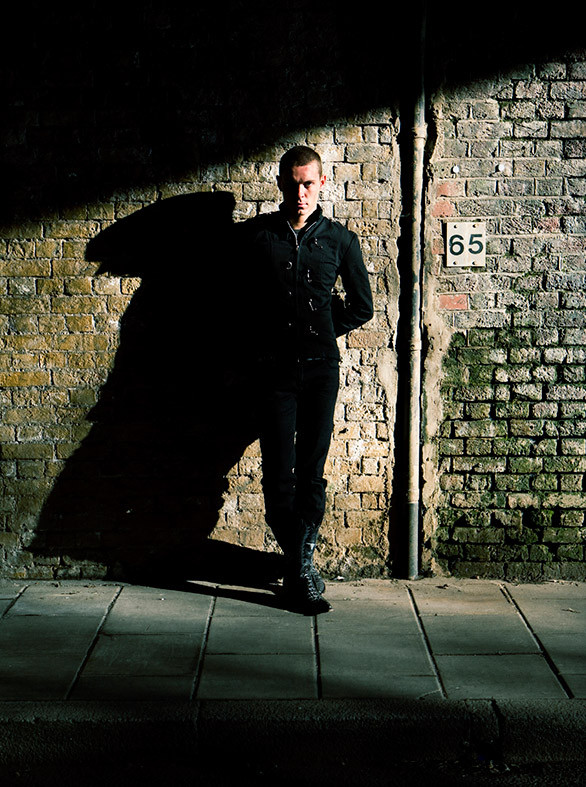Britain's student gigolos: Why thousands of young men are topping up student loans with sex work
Few people will have been surprised by last week's news that tens of thousands of students have turned to some form of work in the sex industry. Over recent years the British media has been peppered with salacious or sensational stories of cash-strapped young women turning to stripping or escorting to make ends meet. The difference this time was that the research revealed that the largest proportion of sex-working students were not women, but young men.

The findings came from the latest report of Swansea University's Student Sex Work Project, and were based upon a national survey of 6,773 students. This revealed that 3.5% of female students and 5% of males had worked in some capacity within the sex industry. The work they were doing was mostly so-called indirect sex work, such as stripping, acting in porn or working on webcams or phonelines, while around one in 40 male students (compared to one in 77 female students) had experience of direct sex work - having sex with clients for money.
It is essential to retain a sense of perspective on these statistics. For most of these men and women, the survey found, sex work has been occasional or irregular, performed to earn daily spending money on a 'lifestyle' rather than out of desperation and destitution. Technology has made it easy to blur the lines between casual hook-ups and financial gifts or 'expenses' or to monetise cybersex.
Three quarters of the students who had been involved were no longer active in the industry at the time of the survey. Many cited curiosity, their own sexual pleasure or enjoying the work among their reasons for getting involved. Three quarters said they always or usually felt safe while working, and less than a quarter of direct sex workers (and only 7% of indirect sex workers) considered it hard or very hard to leave the work behind when they were ready.
Nonetheless, the research demonstrates the extent to which sex work has become a normal part of the diverse spectrum of student life. For every person with experience in the industry, four or five others say they had considered it.
It is perhaps no surprise that last week the National Union of Students Women's Section voted to oppose all efforts to criminalise the sex industry – a significant step in an era where the so-called Nordic model (where buying but not selling sex is made a criminal offence) has already been introduced in Northern Ireland and is being lobbied for heavily elsewhere in the UK.
Most sex workers and their support organisations strongly oppose such laws, arguing that they push sex work into the shadows where workers are more vulnerable to abuse or social harm. The Student Sex Work Project found that the biggest downside for sex workers was the secrecy required as a consequence of stigma and prejudice.

Debt, mental illness and STDs
There is no denying that sex workers, whatever their age, gender or lifestyle, can be vulnerable at the best of times. Many admit they need support to stay safe and healthy, particularly with regard to sexual health. An important minority are likely to have severe personal issues relating to debt, physical and mental health, addiction or other social issues.
Male sex workers report that problems of stigma and discrimination can be greatly compounded by homophobia, sometimes of a violent nature. Other research has found that transgender people are disproportionately likely to turn to sex work due to widespread prejudice and discrimination in other workplaces.
These are complex issues and the new research revealed that many of those responsible for the social and pastoral care of student populations were often woefully under-informed and unprepared to deal with the issues.
The wider problem
The extent of young men's involvement in the sex industry might shock and surprise many, but it probably shouldn't. One data analysis site recently attempted to quantify the numbers of British men offering sex for money through a leading online contacts site. They found that for every six female sex workers, there were approximately four men.
A recent evaluation of the Safer Streets project in Manchester reported that over seven months, outreach workers patrolled a small patch of the city centre a couple of times a week. In that time they identified 60 different individual males who were known or presumed to be offering sex for money. Most were aged 21 to 26, but disturbingly, they also found boys as young as 12 and 13 at immediate and severe risk of abuse.
'One data analysis site recently attempted to quantify the numbers of British men offering sex for money through a leading online contacts site. They found that for every six female sex workers, there were approximately four men.'
It is with this group, victims of commercial child sex abuse, where research reveals the most grim and distressing picture.
One major study in New York set out to establish why authorities were failing to locate and protect victims of child exploitation on the streets. It transpired they had been looking in the wrong places. Rather than fitting the stereotype of gangs of girls being pimped and managed in backstreet brothels by organised criminals, most commercially abused children were runaways and street kids, operating independently, and 45% of them were boys.
Research by the US Department of Justice in 2004 showed that American police report more contacts with (to use their term) male juvenile prostitutes than with their female counterparts, and that while underage girls would typically be treated as victims and referred to social services, underage boys were more likely to be regarded as criminals and arrested.
In parts of the developing world, the breadth of the problem is almost unfathomable. The international charity End Child Prostitution and Trafficking (ECPAT) note that certain countries almost appear to specialise in the abuse of boys by Western sex tourists. There are parts of Sri Lanka, for instance, where it is estimated that 90% of children abused for money are boys.
It may well be that you are now thinking it crass to focus on the gender of abused children, as if one gender mattered more. I wholeheartedly agree. Unfortunately, too often this is exactly what happens.
As ECPAT noted in a recent report, the United Nations 2001 protocol on sex trafficking specified that there were particular focus on "women and children" and that in practice, international initiatives with 'children' almost invariably means 'girls.' To quote ECPAT: "many of the programmes initiated since 2001 that focus on adolescents trafficked for sexual purposes have assumed that the focus should be on girls.
"It seems that not enough effort has been made to collect data about boys who receive money for commercial sex after moving away from home to establish whether they have been trafficked or what measures would help protect them."
The same failing has been identified in the academic literature on sex work and trafficking, in which, as one author put it: "most failed to acknowledge the existence of male sex workers at all." Just last month, the serious case review into the child grooming scandal in Oxfordshire referred to the hundreds of girls who had been abused in exchange for cash and gifts. Only belatedly did the local authority acknowledge that the known victims included at least 50 boys, a fact entirely ignored by most media and – shamefully – the serious case review's own published report.
Whether male or female, student or not, consenting adult or abused child, everyone involved in the sex industry needs appropriate protection, concern, support and respect. None of those rights can be fully afforded when a significant proportion of those involved are written out of the story or ignored as an ideological inconvenience. The needs and wishes of male sex workers, like their circumstances and backgrounds are undoubtedly diverse, complex and often unpredictable.
The only thing that is sure is that any such needs cannot be met until we acknowledge they exist.
Ally Fogg is a freelance writer and journalist based in Manchester, UK, who comments and blogs widely on issues of social justice, politics and male gender issues. He has previously worked in community media as a project manager and as lead author of the Community Radio Toolkit, as an editor and staff writer for the Big Issue in the North, and as an academic researcher in clinical psychology and epidemiology.
He can usually be found arguing with people on his blog at http://freethoughtblogs.com/hetpat/ or on Twitter @AllyFogg.
© Copyright IBTimes 2025. All rights reserved.





















